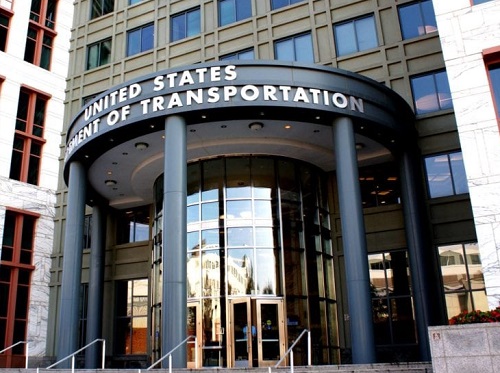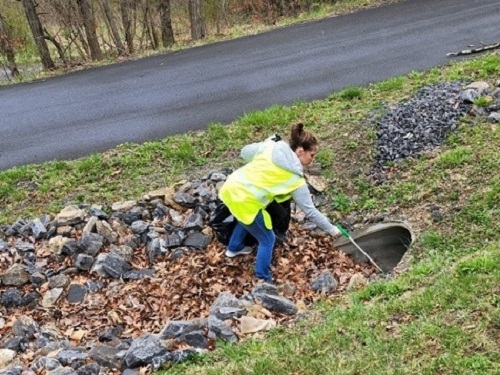A roundup of headlines curated for state transportation environmental professionals
FEDERAL ACTION
The Transportation Department maps out its next five years of research
– WFED Radio’s Federal Drive
U.S. feds announce new EV charging network standards
– The Buzz EV News
In Race to Build Out EV Charging Stations, Some Cities and States Have a Leg Up
– Route Fifty
America’s airports aren’t ready for climate change
– Brookings’ The Avenue (blog)
Biden Sets in Motion Gasoline Policy Shift to Boost Ethanol
– Transport Topics
USDOT Announces more than $12 Million in Funding for the U.S. Marine Highway Program –
Maritime Administration (media release)
Biden-Harris Administration Announces First-Ever Awards from Program to Reconnect Communities
– USDOT (media release)
INFRASTRUCTURE RESILIENCE AND SUSTAINABILITY
Georgia’s Transportation Investment Act Marks First Decade
– AASHTO’s ETAP Podcast
NC’s Ferry System Explores Going Electric
– PBS North Carolina
NYC’s Shadow Transit Network Seeks a Greener Future
– CityLab
Irving, Texas Turns to Tech to Place EV Charging Infrastructure
– Government Technology
– USDOT (media release)
AIR QUALITY
E-bikes are gaining popularity in Philly’s low-income communities of color
– Philadelphia Inquirer
A major air quality bill just got revived and is passing the Utah Legislature
– Standard-Examiner
ENVIRONMENTAL JUSTICE
Why the White House’s environmental justice tool is still disappointing advocates
– Grist
Ship Canal Bridge encampment residents who refuse housing will be trespassed, WSDOT says
– KOMO-TV
Delaware Joins Equity in Infrastructure Project
– DelDOT (media release)
NATURAL RESOURCES
Palo Alto bans e-bikes on unpaved paths in open space preserves
– KPIX-TV
Are Butterflies Wildlife? Depends Where You Live.
– New York Times
The EU Is Cracking Down on Plastic. Will Others Follow?
– Bloomberg Green
CULTURAL RESOURCES
Roanoke offers public transit to hiking trails. Should more parts of Virginia do the same?
– Virginia Mercury (commentary)
HEALTH AND HUMAN ENVIRONMENT/ACTIVE TRANSPORTATION
Dedication Ceremony Celebrates Opening of 100th Mile of San Antonio Area Trail –
KENS-TV
Piedmont Mobility Summit aims to improve accessibility to outdoor activities
– WCAV-TV
Austin Vision Zero report highlights racial disparities in traffic fatalities and injuries
– KEYE-TV
To promote exercise, planners must look beyond cities
– Cornell Chronicle
A Troubling Trend: Pedestrian Deaths Continue to Rise
– Route Fifty
Hawaii DOT Rolls Out Electric Bike and Electric Moped Rebate Program
– Hawaii DOT
– European Transport Safety Council
Are Cyclists Safe Around Self-Driving Cars?
– Bicycling (essay)
TRB RESOURCES/ANNOUNCEMENTS
Telecommuting and Transit Ridership in a Post-Pandemic Future
– TRB
TR News 341 September-October 2022: Decarbonizing Transportation
– TRB
Building Socioeconomic Equity Through Transportation Research
– TRB
2023 Florida Commuter Choice Certificate Program
– FDOT (link to registration)
FEDERAL REGISTER NOTICES
National Electric Vehicle Infrastructure Standards and Requirements –
FHWA (Final rule)
National Navigation Safety Advisory Committee Meeting; March 2023 Meetings
– Coast Guard (Notice)
– Coast Guard (Notice of study; request for comments)
Air Plan Approval; Florida; Update to Materials Incorporated by Reference
– EPA (Final rule; notice of administrative change)
Air Plan Approval; Kentucky; Revision to Federally Enforceable District Origin Operating Permits
– EPA (Final rule)
Vermont: Final Authorization of State Hazardous Waste Management Program Revisions
– EPA (Direct final rule)
Vermont: Final Authorization of State Hazardous Waste Management Program Revisions
– EPA (Proposed rule)
Request From States for Removal of Gasoline Volatility Waiver
– EPA (Proposed rule)
White House Environmental Justice Advisory Council; Notification of Virtual Public Meeting
– EPA (Notification)
Meeting of the Regional Resource Stewardship Council –
Tennessee Valley Authority (Notice)
Board on Coastal Engineering Research
– Corps of Engineers (Notice of advisory committee meeting)
Regional Meeting of the Binational Bridges and Border Crossings Group in Las Cruces, New Mexico
– State Department (Notice)


